Physical Address
304 North Cardinal St.
Dorchester Center, MA 02124
Written By:

Published On: July 29, 2025
Last Updated On: September 6, 2025
Fact Checked By:

Reviewed By:

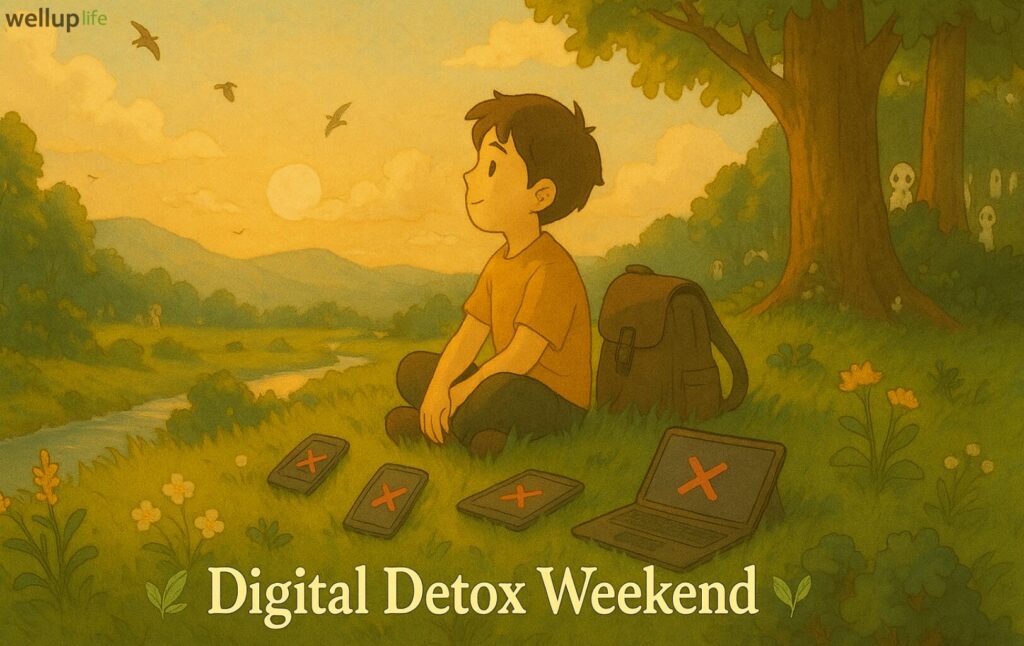
When was the last time you spent an entire weekend without your phone, social media, or any screens? For most of us, the answer is never. Each and every day, we stick to our mobile phones. Checking it unnecessarily.
We take it out of the pocket, scroll Instagram feeds, and keep it inside the pocket, and after some time, we again take it out and scroll social media or do a web search and put it back. We live in a world where notifications, emails, and endless scrolling have become a big part of our lives. I was no different—constantly glued to my phone, checking updates even when I didn’t need to.
My frequent habit of checking my phone, spending a large amount of time on social media, and the internet is now making me mentally weak, and I have now started sensing all this. I can feel my mental fatigue, distress, relentlessness, weak thinking ability, unfocused mind, and low confidence.
That’s when I decided to try something I had only read about before—a digital detox weekend. In simple words, a digital detox means taking a break from all digital devices like smartphones, laptops, and even TVs. It’s about disconnecting from the online world so you can reconnect with yourself and the real world around you, and that’s what I need the most to regain my mental power.
In this article, I’ll share why I decided to do a digital detox, how I planned it, what I did during those two days, the challenges I faced, and what changed in my life afterward. If you’ve ever wondered about the benefits of a digital detox or how to start one, keep reading.
It all started when I noticed how much time I was spending on my phone every single day. My screen time report shocked me—over 6 hours daily! Most of it was on social media, scrolling through reels that didn’t really add value to my life. I was feeling tired, anxious, and less productive. That’s when I realized I needed a break.
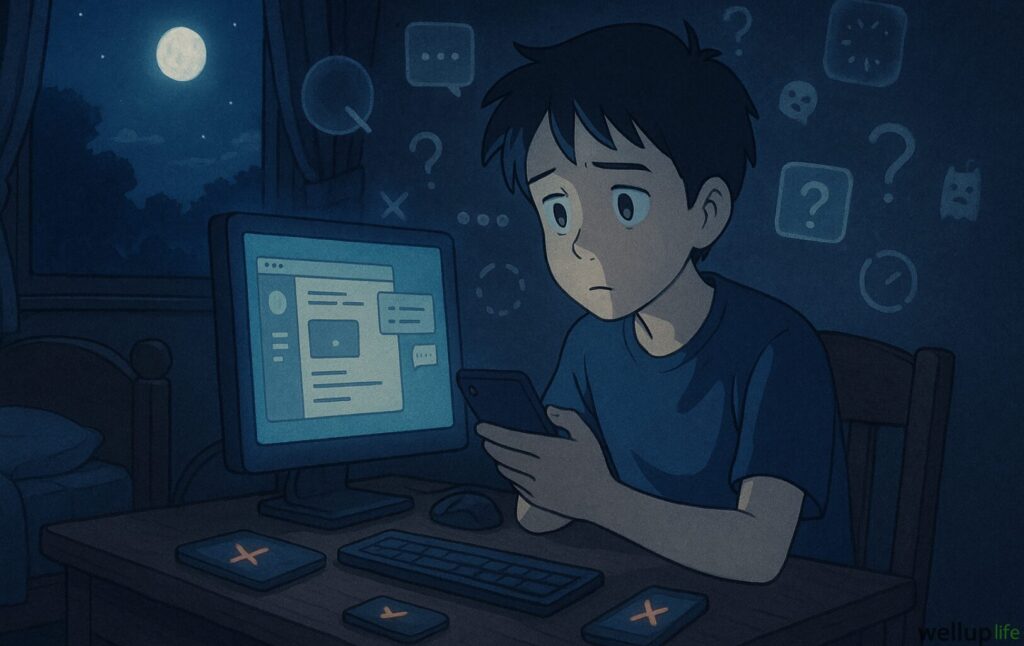
I also noticed some clear signs that I needed a digital detox:
All these are happening to me. If this sounds familiar, you’re not alone. Research shows that excessive screen time can increase stress, anxiety, and even affect your sleep quality [1]Too much screen time linked to stress and poor mental health. Another study found that reducing screen time improves mood and overall well-being [2]Study on screen time reduction and mental health.
I realized I wasn’t truly present in the real world anymore. So, I decided to take a break—a full digital detox weekend—to see if I could reset my mind and feel better.
I knew that taking a technology break for 48 hours wasn’t going to be easy. We are so used to constant notifications and updates that even the thought of not checking my phone felt strange. But I have already determined to take a smartphone addiction break, because this addiction is now costing me my mental peace and brain functionality. So, I made a simple plan to make my digital detox weekend easier and more enjoyable.
The first thing I did was set boundaries. For two days, no social media, no browsing, no unnecessary phone use. I kept my phone switched off and stored it in a drawer. If you’re trying this, you can allow essential calls only, but no scrolling. Setting clear rules is important because by setting the rules, you are determined to follow your rules, lead to less procastination, so for two days, I am not going to touch my devices unnecessarily, and this is the power.
Second thing, I told my close friends and family that I was doing a digital detox and wouldn’t be available online. This was important because we often worry about missing urgent messages. When you go offline suddenly, your family or friends might think about your absence. So, letting people know removes stress and unnecessary thinking about you.
I didn’t want to sit idly and feel bored, so I made a list of offline activities to do without a screen. Here are my basic, simple-to-follow offline activities for the detox weekend.
Having a plan for the offline activities is key because boredom can quickly push you back to your phone. Studies show that planned leisure activities during a detox make the experience more enjoyable and reduce withdrawal symptoms [3]Digital detox planning improves success rates. So, planning the activities during the digital detox weekend will help you stay on track.
Before the detox began, I logged out of all my social media accounts, turned off the Wi-Fi, and physically moved my devices out of sight. It might sound simple, but this step made a huge difference. Out of sight really does mean out of mind—and removing the temptation is key. Because let’s be honest, when your phone is nearby, the urge to “just check for a second” can quickly break your determination.
By planning ahead and creating that distance, I felt more in control, less anxious, and truly committed to the process. Looking back, it was one of the smartest decisions I made for a successful digital detox weekend.
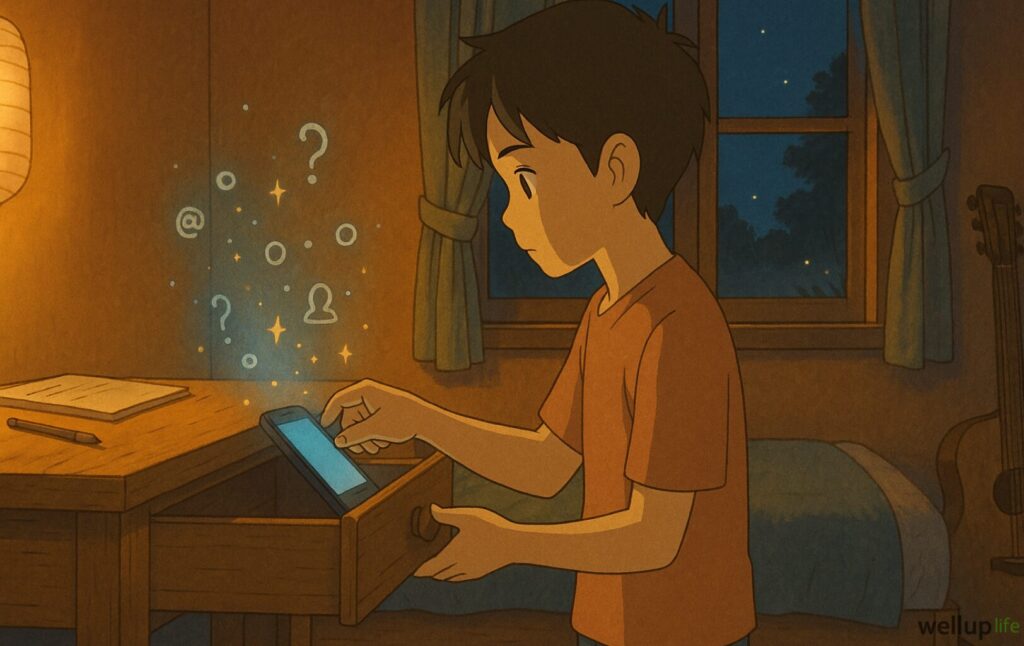
When the weekend began, I switched off my phone and placed it in a drawer. At first, it felt strange—like something was missing. We are so used to checking our phones every few minutes that being offline feels unnatural at first. But soon, I started enjoying the quiet.
Here’s what I did during my digital detox weekend:
I picked up a self-improvement book that had been sitting on my shelf for months. Reading without distractions felt amazing. Studies show that reading can reduce stress by up to 68% [4]Reading reduces stress significantly.
I went for a long walk in a nearby park. Just being around trees and fresh air gave me a sense of calm. Research suggests that spending time in nature improves mood and lowers anxiety [5]Nature and mental health benefits.
I did a short meditation session in the morning. Even 10 minutes of mindfulness can help clear your mind and reduce stress [6]Mindfulness reduces stress and improves focus.
Instead of ordering food, I cooked a healthy meal and enjoyed it without any screens. Eating without distractions made me appreciate food more.

I wrote down how I was feeling during the detox. At first, I felt restless, but later I felt calm and present. Journaling is a great way to reflect on your emotions.
The first few hours were the hardest—I kept thinking about checking my phone. But by the second day, I felt lighter, more relaxed, and even happier. It’s amazing how much time we actually have when we’re not glued to our screens.
I won’t lie—my digital detox weekend wasn’t all sunshine and peace. The first 24 hours were tough. When you’re so used to constant notifications and updates, your brain feels like something is missing. Here are the biggest challenges I faced:
Every few minutes, I felt the need to grab my phone. It was almost like a habit I couldn’t control. Research shows that smartphone addiction triggers dopamine responses similar to gambling and other addictive behaviors [7]Smartphone addiction and dopamine release.
At first, I didn’t know what to do with my free time. I realized how much I rely on scrolling social media whenever I’m bored. This is why having offline activities planned was a lifesaver.
What if I missed an important message or trending news? That thought kept coming back. Studies suggest that FOMO is a major reason why people struggle with digital detox [8]FOMO and social media addiction.
Initially, I felt anxious without my phone. But after a few hours, the feeling started to fade. This shows how deeply we’re wired to stay connected all the time.
These challenges taught me a big lesson: our dependency on digital devices is real, and breaking that habit takes effort. But the good news? It gets easier with time.
By the end of my digital detox weekend, I felt like a different person. Honestly, I didn’t expect such a big shift in just two days, but the impact was real. Here are the changes I noticed:
Without constant notifications and social media, my mind felt calm. I could focus on one thing at a time without getting distracted. Studies show that excessive screen time reduces attention span and productivity [9]Impact of screen time on focus. This two days technology-free weekened improve my focus and mental clarity.
Usually, I would scroll on my phone before bed, which often delayed my sleep. During the phone detox, I slept earlier and woke up feeling more refreshed. Research confirms that blue light from screens affects sleep quality and delays melatonin production [10]Blue light and sleep quality.
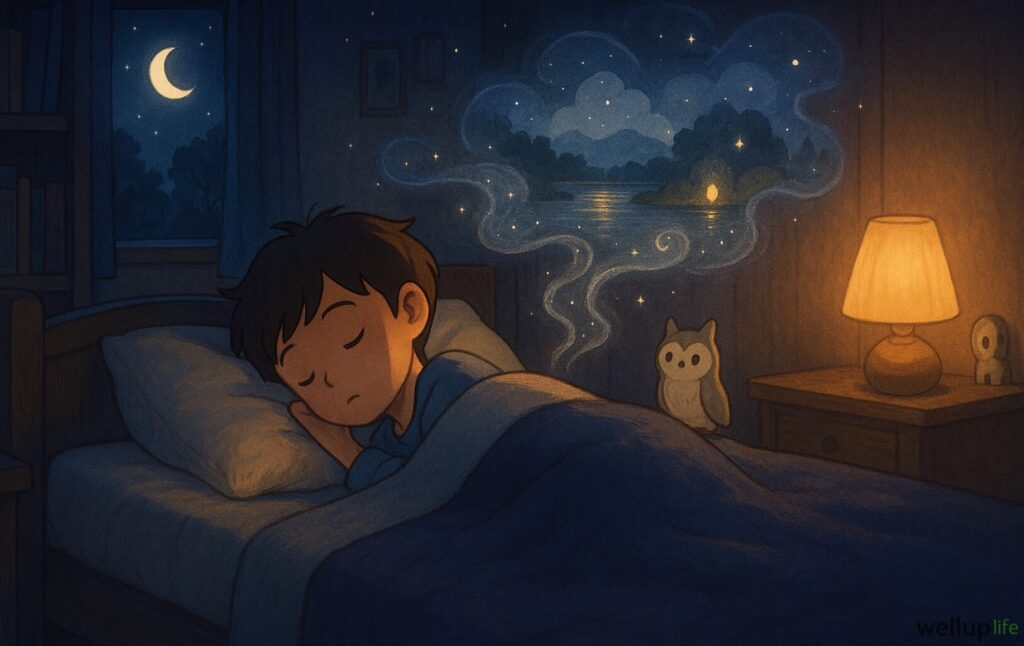
After the first day, I noticed a huge drop in anxiety. No more worrying about messages, emails, or trending news. Taking a break from social media has been linked to lower stress levels and better mental health [11]Social media break improves mental health.
During my digital detox weekend, I found myself doing things I had unintentionally been avoiding for weeks—spending real quality time with my family, cooking slow and mindful meals, sitting in silence, and enjoying nature without the need to capture it for social media. All of it, uninterrupted by notifications or the urge to check my phone.
It made me realize just how much I was missing out on while being constantly glued to a screen. Simple things—like conversations at the dinner table, the sound of birds during a morning walk, or the taste of food when you’re truly present—felt richer, deeper, and more fulfilling.
Would I do it again? Absolutely. In fact, I’ve now committed to making this a monthly habit. Just 48 hours offline brought noticeable changes in my mind, body, and relationships. I’ve done the digital detox weekend myself, and I can honestly say—it’s not just a break from technology, it’s a reset for your entire self.
If you’re thinking about doing a digital detox weekend, here are some social media detox tips that helped me and can make your experience easier:
If going completely offline for two full days feels overwhelming, that’s totally okay. You don’t have to start big. Begin with a few focused hours without screens—maybe a morning or an evening—and notice how you feel. Then, slowly work your way up to a full day or weekend. The goal is progress, not perfection.
Even short digital breaks can have a powerful impact. Research suggests that taking smaller, regular breaks from technology throughout the week can significantly reduce stress levels and improve mental clarity and emotional balance [12]Short digital breaks improve mental health. So even if you’re not ready for a full digital detox weekend yet, every step toward disconnecting helps.
Don’t go into a digital detox with an empty schedule—it’s one of the most common mistakes. Without a plan, boredom can quickly set in, and the temptation to reach for your phone becomes stronger. Instead, fill your weekend with intentional, screen-free activities that you actually enjoy.
Read a book you’ve been putting off, try journaling your thoughts, cook a new recipe from scratch, play in the park, or take a walk in nature without headphones. These simple activities not only keep you engaged, but also help shift your focus back to the present moment.
Planning in advance gives your detox structure, purpose, and a higher chance of success—because you’re not just unplugging, you’re actively reconnecting with real life.

Before starting your digital detox weekend, let your close friends, family, and even colleagues know that you’ll be offline for a while. This small step can make a big difference. One of the biggest reasons people struggle with going offline is the fear of missing an important message or call. By informing others in advance, you take away that anxiety.
You could send a simple text or email explaining that you’re taking a short break from technology and will be unavailable during a specific time frame. If needed, share an alternative way to reach you in case of a true emergency. This creates clear boundaries and reassures both you and the people in your life that everything is under control.
When everyone knows you’re unplugging, you’ll feel more relaxed and less tempted to “just check” your phone, making your digital detox more successful.
One of the most effective ways to stick to your digital detox is to create distance between you and your devices, both physically and mentally. Start by turning off all non-essential notifications, logging out of social media and messaging apps, and, if possible, powering down your phone entirely.
Then, take it a step further: store your phone in another room or place it somewhere out of easy reach. The simple act of removing your device from sight can significantly reduce the urge to check it. Research shows that even having your phone visible—without using it—can lower your focus and increase distraction levels [13]The mere presence of a smartphone reduces cognitive capacity.
When the temptation is out of reach, you’re far more likely to stay present and committed to your digital detox weekend.
Before you begin your digital detox weekend, take a moment to check your current screen time using built-in tools like Digital Wellbeing (Android) or Screen Time (iPhone). These apps show how many hours you spend on each activity—social media, messaging, browsing, and more.
After the detox, check those numbers again. You might be surprised by how much time you were actually spending online—and how much you didn’t miss it. This simple before-and-after comparison is a great way to reflect on your digital habits and see the impact of unplugging in a clear, measurable way.
Over time, tracking screen time can help you set healthier boundaries, reduce unnecessary usage, and create more space for things that actually add value to your life.
Instead of reaching for your phone when bored, try meditation, stretching, or writing. Mindfulness activities can reduce stress and improve overall well-being [14]Mindfulness improves mental health.
Even a short digital detox can bring positive changes to your life. The key is to make it intentional and enjoyable, not stressful.
A digital detox weekend is when you take a break from all digital devices like phones, laptops, and TVs for two days to reduce stress, improve focus, and reconnect with real-life activities.
A digital detox can reduce anxiety, improve sleep, and boost productivity. It gives your mind a break from constant notifications and social media pressure.
Plan offline activities, inform friends and family, log out of apps, and turn off notifications. Keep your devices away from your reach.
Read books, go for nature walks, cook, meditate, or journal your thoughts. Offline hobbies make the detox enjoyable.
Yes, it’s normal to feel anxious or bored at first because of phone habits. These feelings fade after a few hours as your mind adjusts.
Taking a digital detox weekend was one of the best decisions I’ve made for my mental health and overall well-being. At first, it felt challenging to stay away from my phone, but the results were worth it—better focus, improved sleep, and a calmer mind.
We live in a world where staying connected has become a habit, but sometimes, disconnecting is what we truly need. Even a short break from screens can help you reduce stress, fight anxiety, and make time for real-life experiences.
If you’ve never tried a digital detox, start small. Begin with a few hours, then a full day, and eventually a weekend. Plan fun offline activities and see how much better you feel without constant notifications.
Ready to give it a try? Challenge yourself to go offline for 48 hours this weekend. Trust me, your mind will thank you.
And when you do, share your experience in the feedback section below—I’d love to know how your digital detox changes your life!
Vedant & Stoic Thinker
Suchit Prajapati, MA in Philosophy, is the Editorial Director at Wellup Life. A passionate Vedant and Stoic thinker, he inspires readers to embrace happiness, inner peace, and purposeful living through timeless wisdom.

Reviewed By:

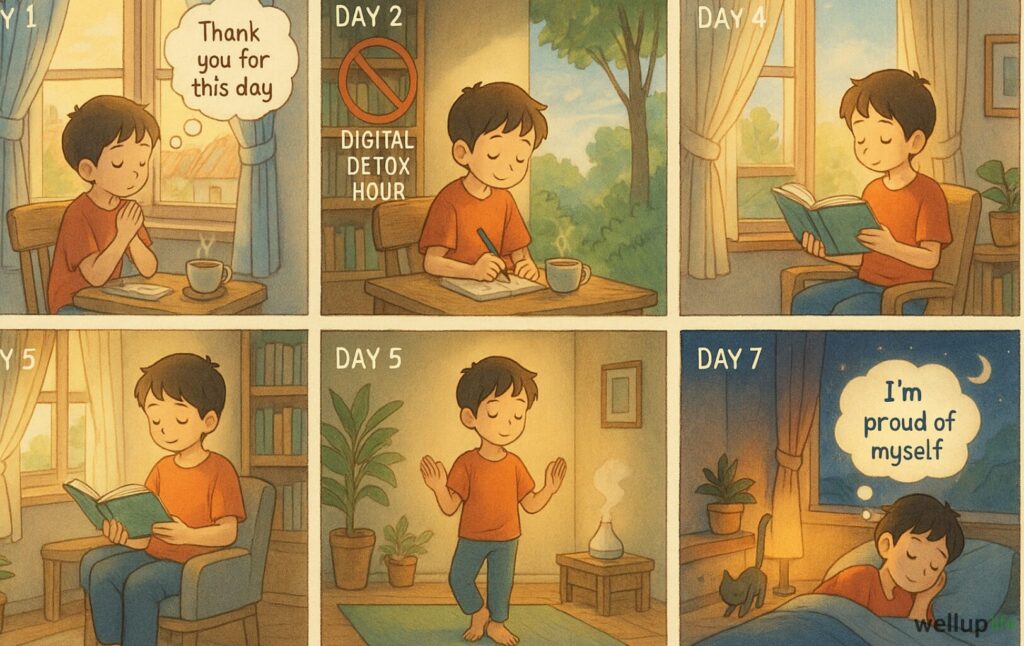
Reviewed By:

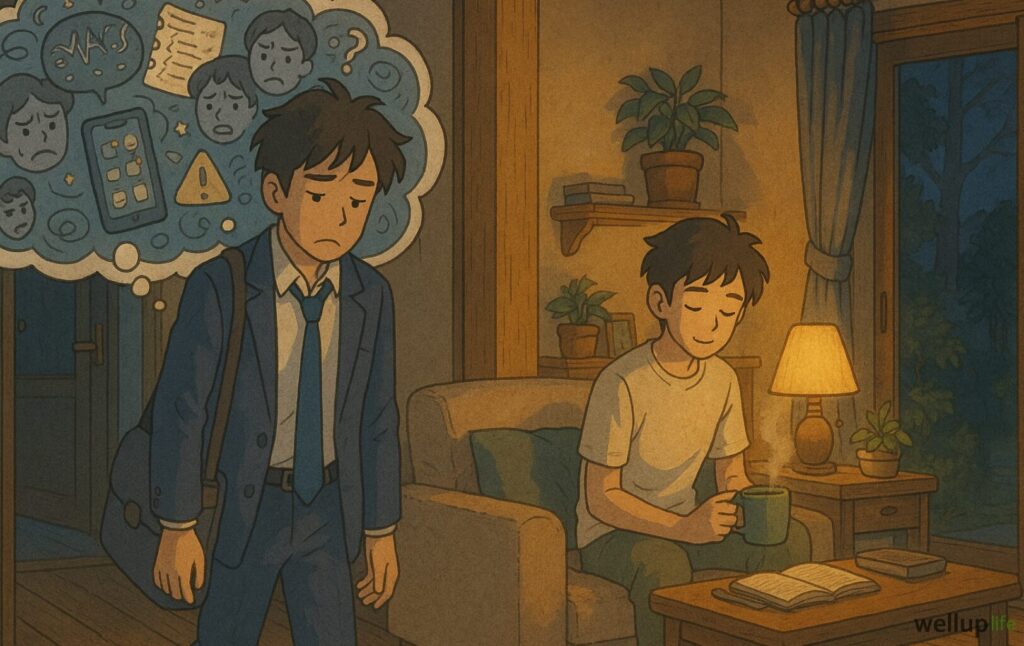
Reviewed By:

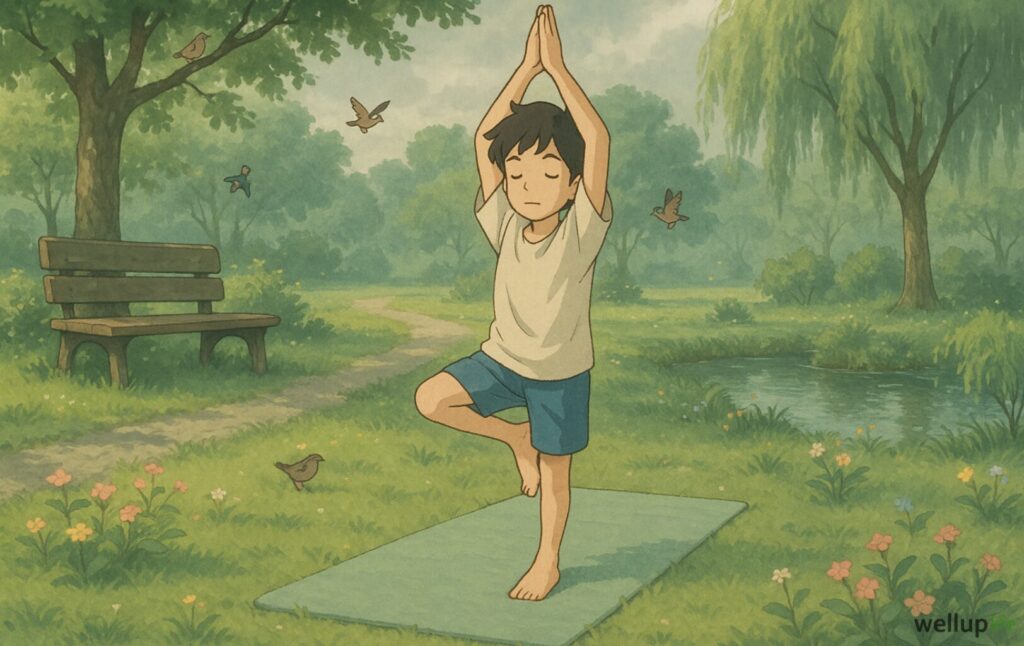
Medically Reviewed By:

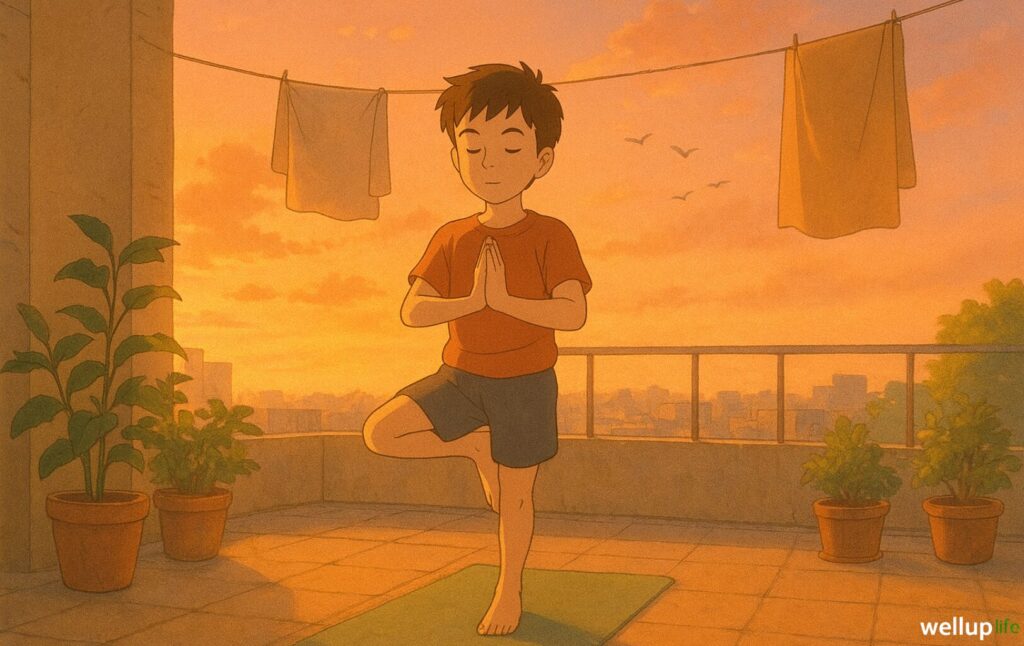
Reviewed By:

Wellup Life is your space for personal growth, wellness, and mindful living. From self-improvement and productivity to spirituality and relationships, we share practical insights and timeless wisdom to help you live with clarity, balance, and purpose.
Copyright © 2024 – Wellup Life — All rights reserved
